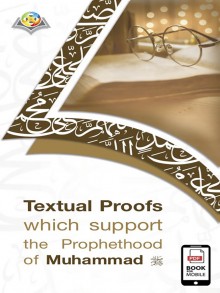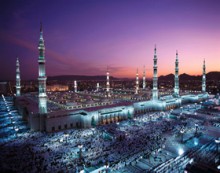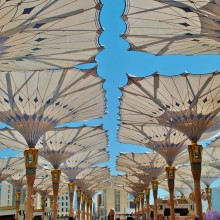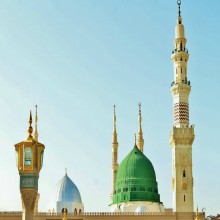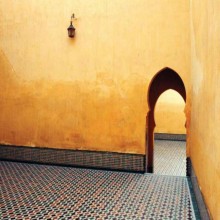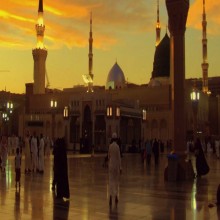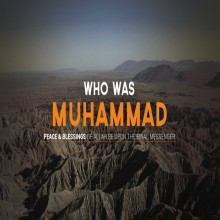-

islamreligion.com
What is the Sunnah? (part 2 of 2): The Sunnah in Islamic Law
A brief article outlining what constitutes the Sunnah, and its role in Islamic Law. Part Two: How the Sunnah differs from the Quran, and the position of the Sunnah in Islamic Law.
-

Osoul Global Center
Textual Proofs which support the Prophethood of Muhammad peace be upon him
Textual Proofs which support the Prophethood of Muhammad peace be upon him.
-

rasoulallah.net
His Manners and Ethics – The Prophet’s Humbleness (PBUH)
The Prophet was humble, he did not pursue the worldly pleasures, if he wanted, it would have been his. He wanted the reward of Allah and the afterlife. So, Allah blessed him with the pleasures of this world and the hereafter.
-
-
-

Haya Muhammad Eid
Introducing the Prophet of Mercy
For mercy there was sent a Prophet. Not only to show it, preach it, and teach it, but to be it: "We have only sent you as a mercy to the worlds." (Al-Anbiya’ 21: 107).
-

Basel Muhammad Arif Al-Mahayni
Who is Muhammad?
Prophet Muhammad was and supposed to be a role model for all people. He was known for his honesty, truthfulness, courage, compassion, love, care and mercy towards everyone.
-
-

AboutIslam
How the Prophet Treated the Youth
The Prophet’s love and mercy was extended to all youth irrespective of their background or religion.
-

AboutIslam
Prophet Muhammad: The Practical Image of Islam
Prophet Muhammad (peace and blessings be upon him) is the practical image of Islam. There is no way that one can get to know Islam, the true religion of Allah, without knowing Muhammad,
-

whyIslam
Last Sermon Of The Prophet Muhammad (PBUH)
This sermon was delivered on the Ninth Day of Islamic month of Dhul-Hijjah Year 632 A.C (10 A.H.) in the ‘Uranah valley of Mount Arafat’ in Mecca
-

whyIslam
Four Facts About Seerah, the Study of the Life of the Prophet
Muslims look to the Prophet Muhammad (peace be upon him) as their role model, and they strive to emulate him and love him more than they love their own selves.
-

whyIslam
Five Things About Aishah, the Wife of the Prophet
Aishah, the wife of Prophet Muhammad (peace be upon him), is considered one of the greatest scholars in Islam—and for good reason. She conveyed over two thousand narrations of the Prophet (peace be upon him).
-

whyIslam
The Simplicity of the Prophet Muhammad
The Prophet’s simplicity did not disappear when he became the undisputed leader of the Arabian peninsula at the end of his Prophetic career. His Companion Umar once visited him and saw him sleeping on a mat of branches.
-

Adil Salahi
Prophet Muhammad has never broken a promise
From the Islamic point of view, being able to talk freely to people and to call them to Islam is much more important than winning battles. It has never been the aim of Islam to conquer countries or subjugate people. Its aim is to win followers through conviction.
-

Adil Salahi
Love in the Prophet’s Home
The Prophet preferred a life of poverty, which was sometimes close to, if not below, the subsistence level. Yet this did not detract from the fact that his was a very happy home, with love spreading from its rooms to those who were associated in any way with the Prophet’s family.
-

Adil Salahi
Prophet Muhammad – Grateful for every kindness
Prophet Muhammad was poor, but his wife was rich. It was Khadijah who chose the Prophet after being very impressed with his character. Now she saw what was to her a new but highly commendable attitude, which is loyalty to those who had done him a kindness.
-

Aisha Stacey
Prophet Muhammad – Man for all seasons
Prophet Muhammad took his covenant with God to spread the message of Islam, very seriously, he communicated the text of the Quran, his understanding of the revelation formed the basis of all the Islamic sciences.
-

Aisha Stacey
Who is Prophet Muhammad?
Prophet Muhammad is the man beloved by more than 1.2 billion Muslims. He is the man who taught us patience in the face of adversity, and taught us to live in this world but seek eternal life in the hereafter.
-

IslamReligion
5 Prophecies of the Quran Addressed to Muhammad
History gives a living testimony that the Muslims addressed by these verses ruled the lands of the former Persian and Roman empires, an expansion that amazed and won admiration of world historians.
Prophet Muhammad


